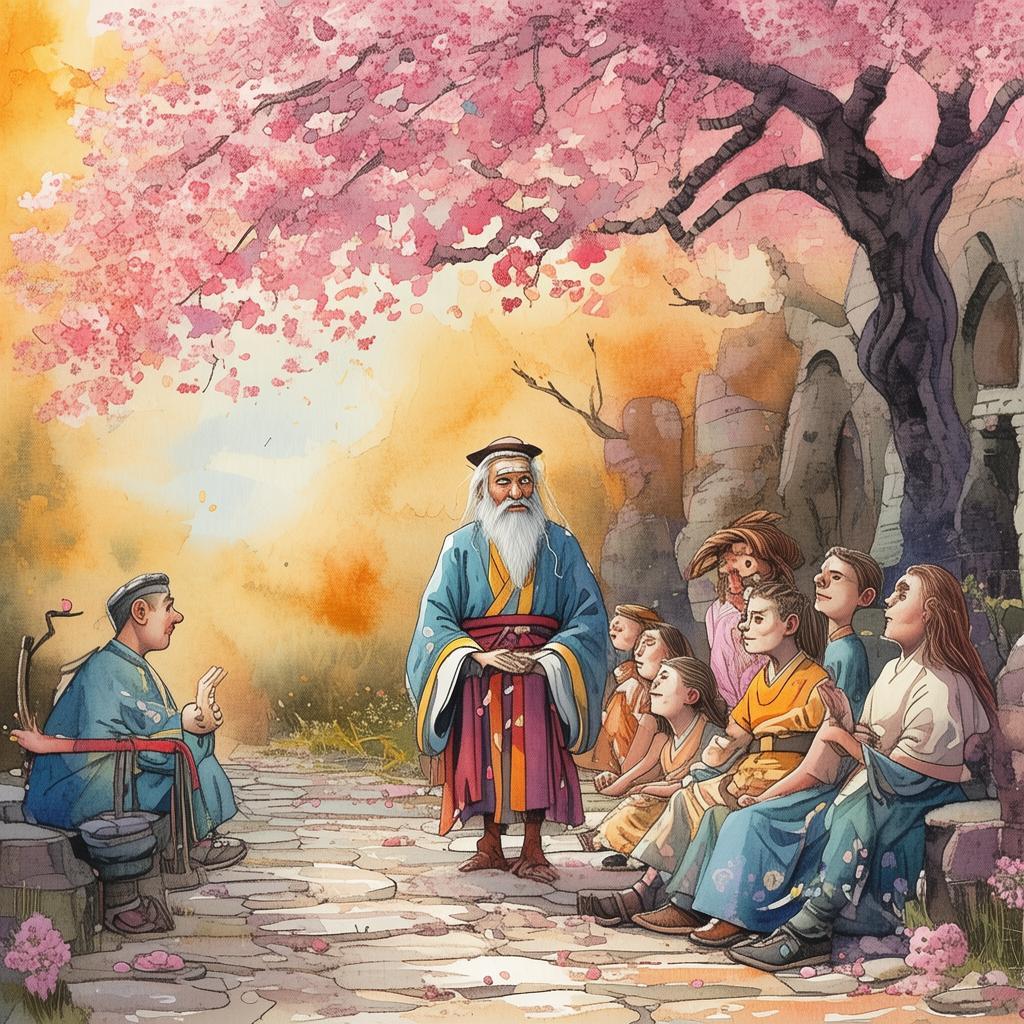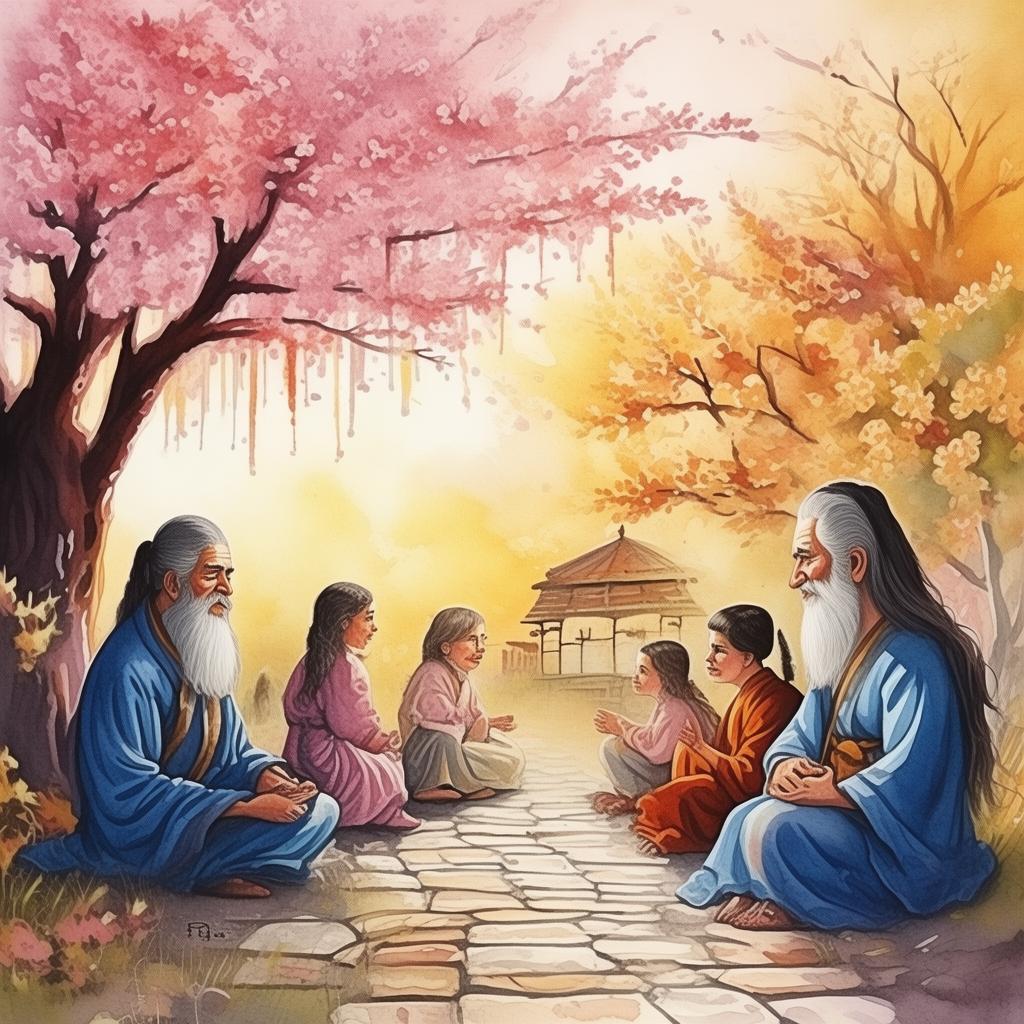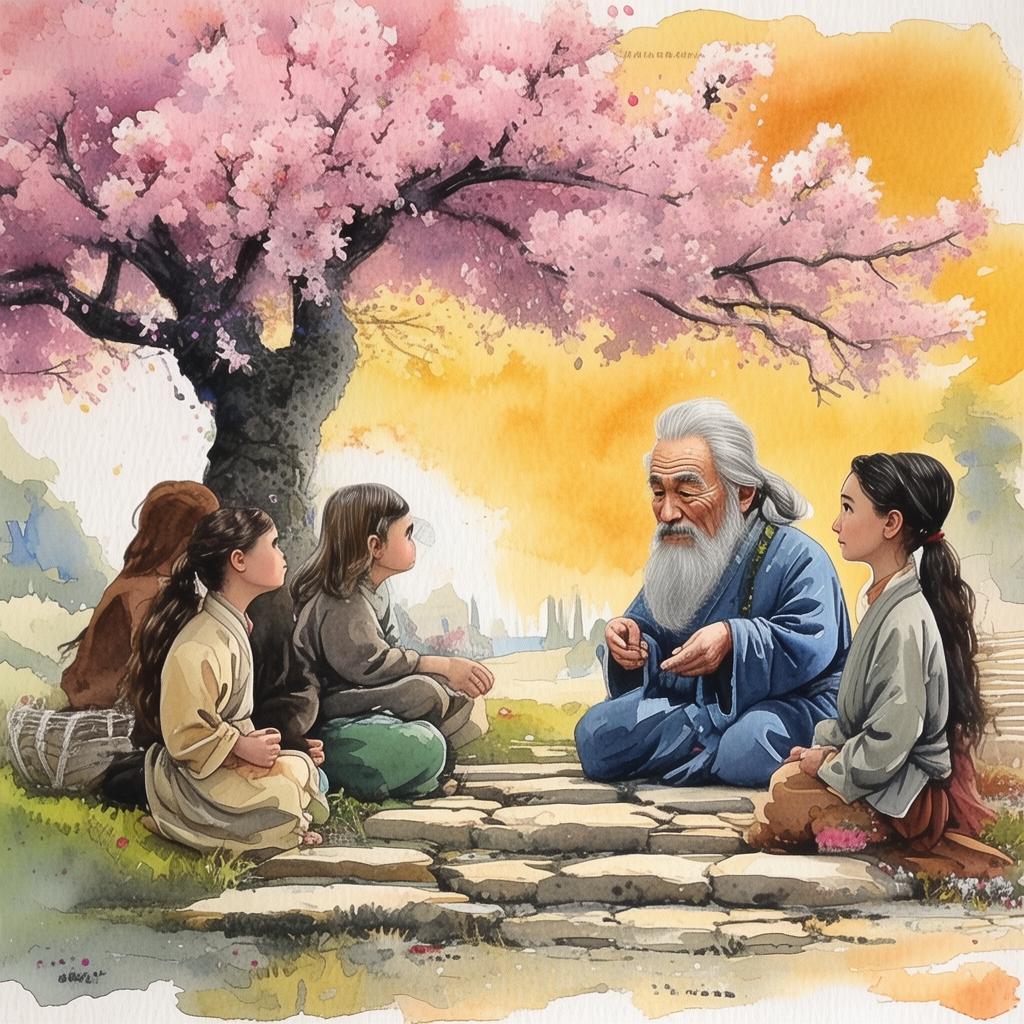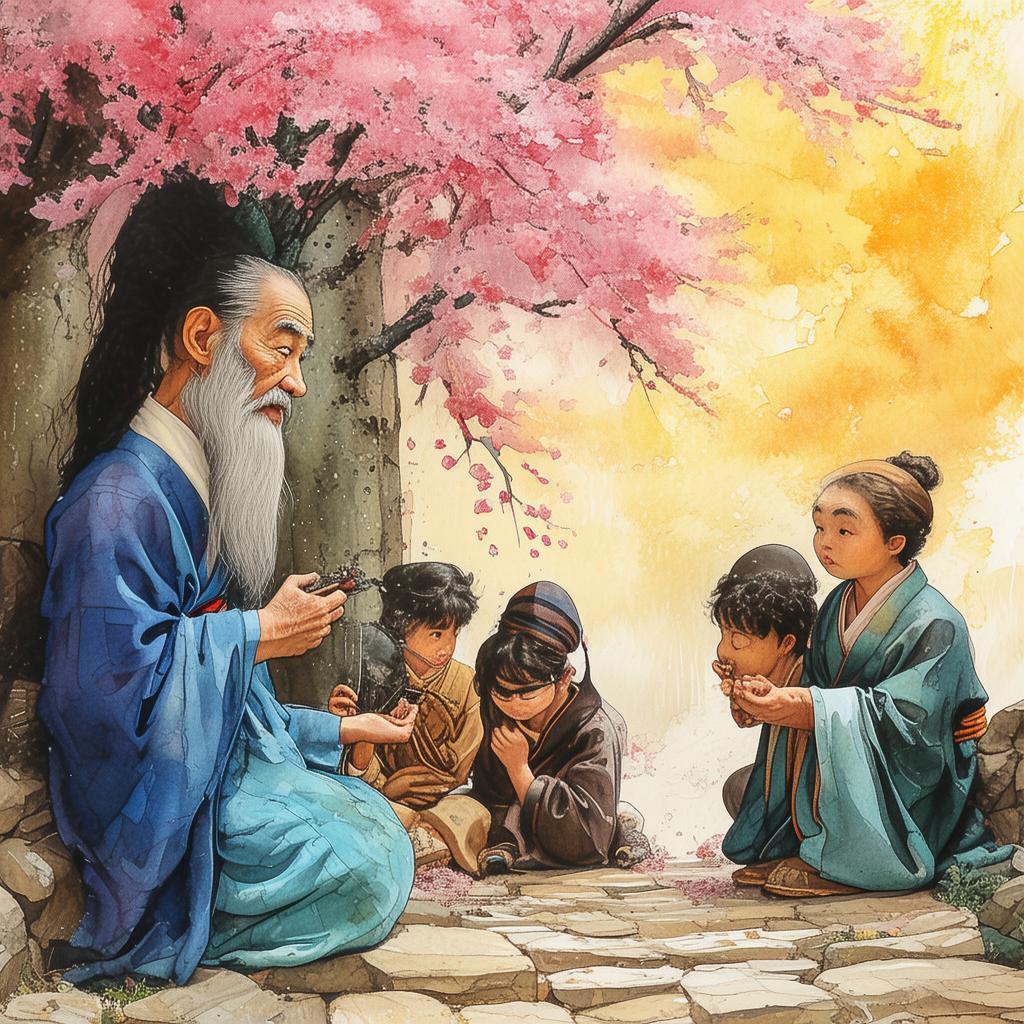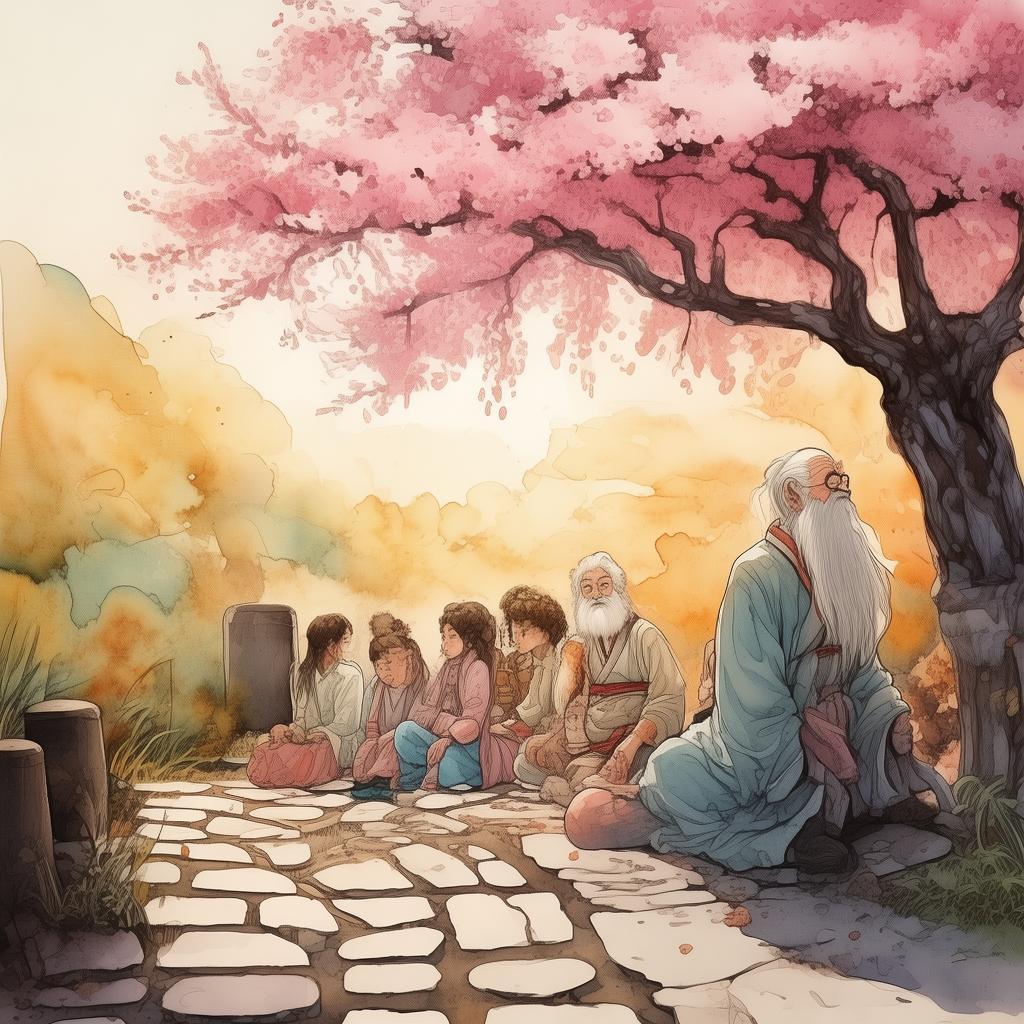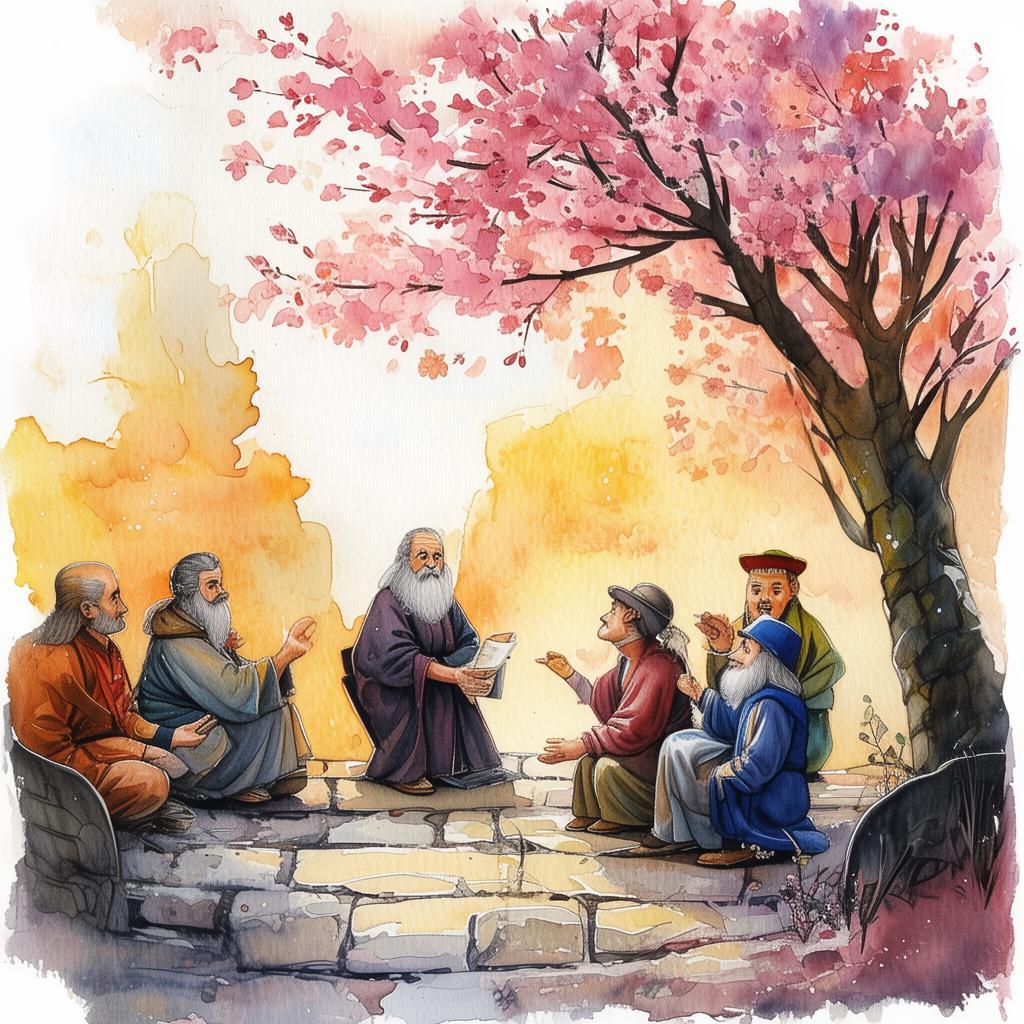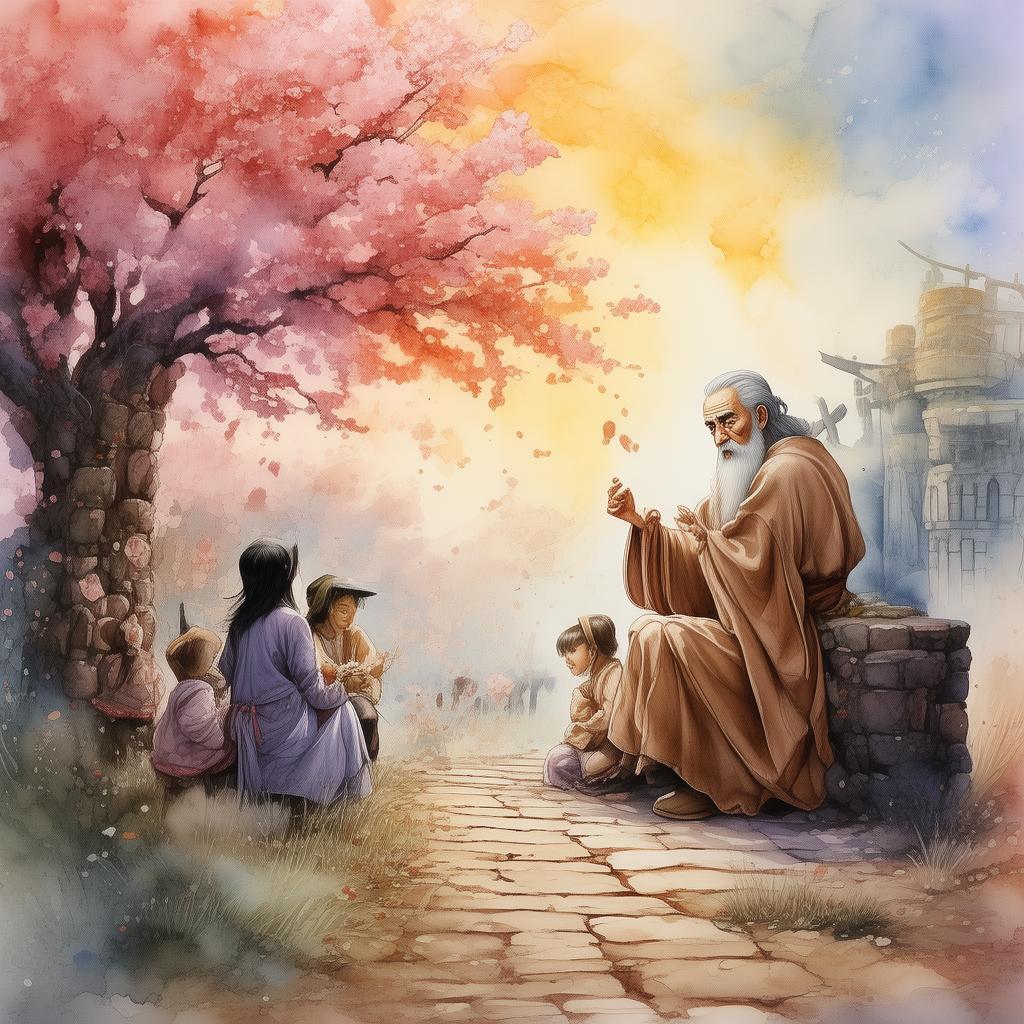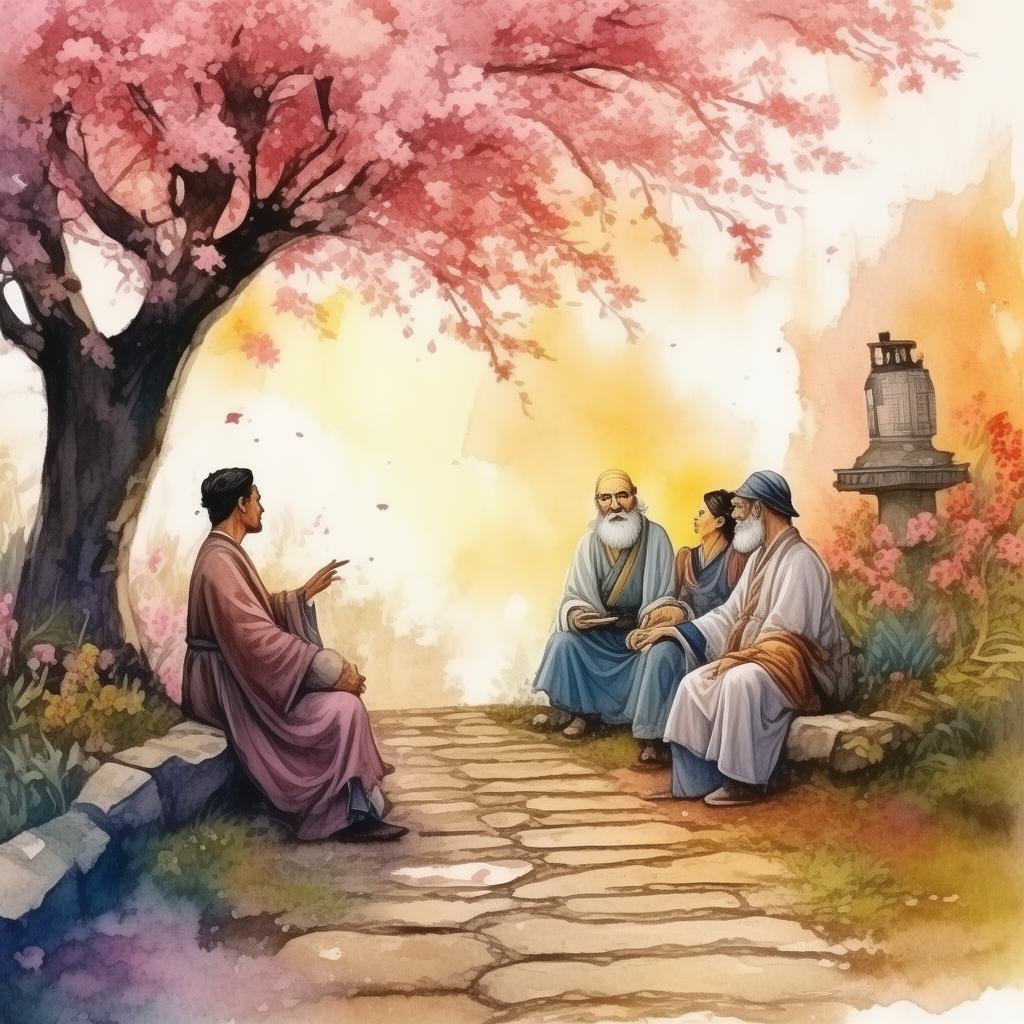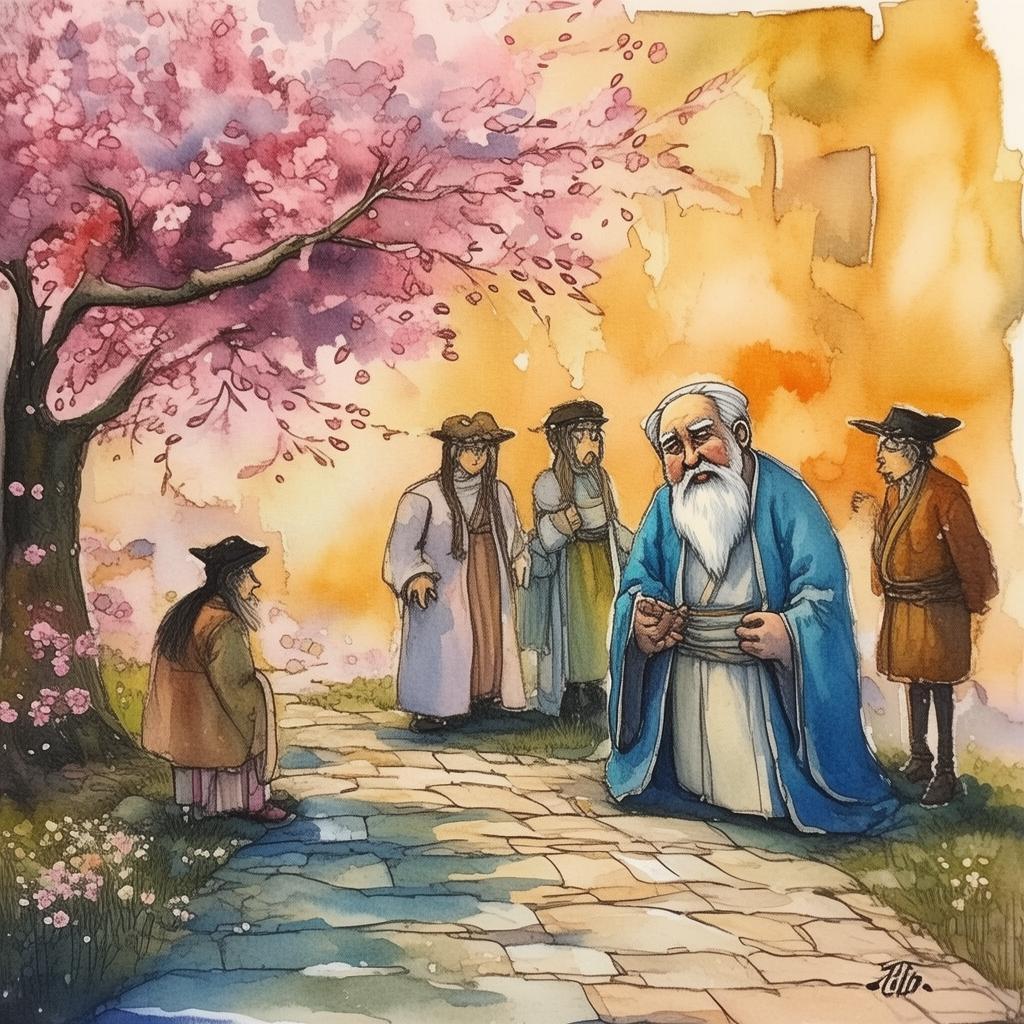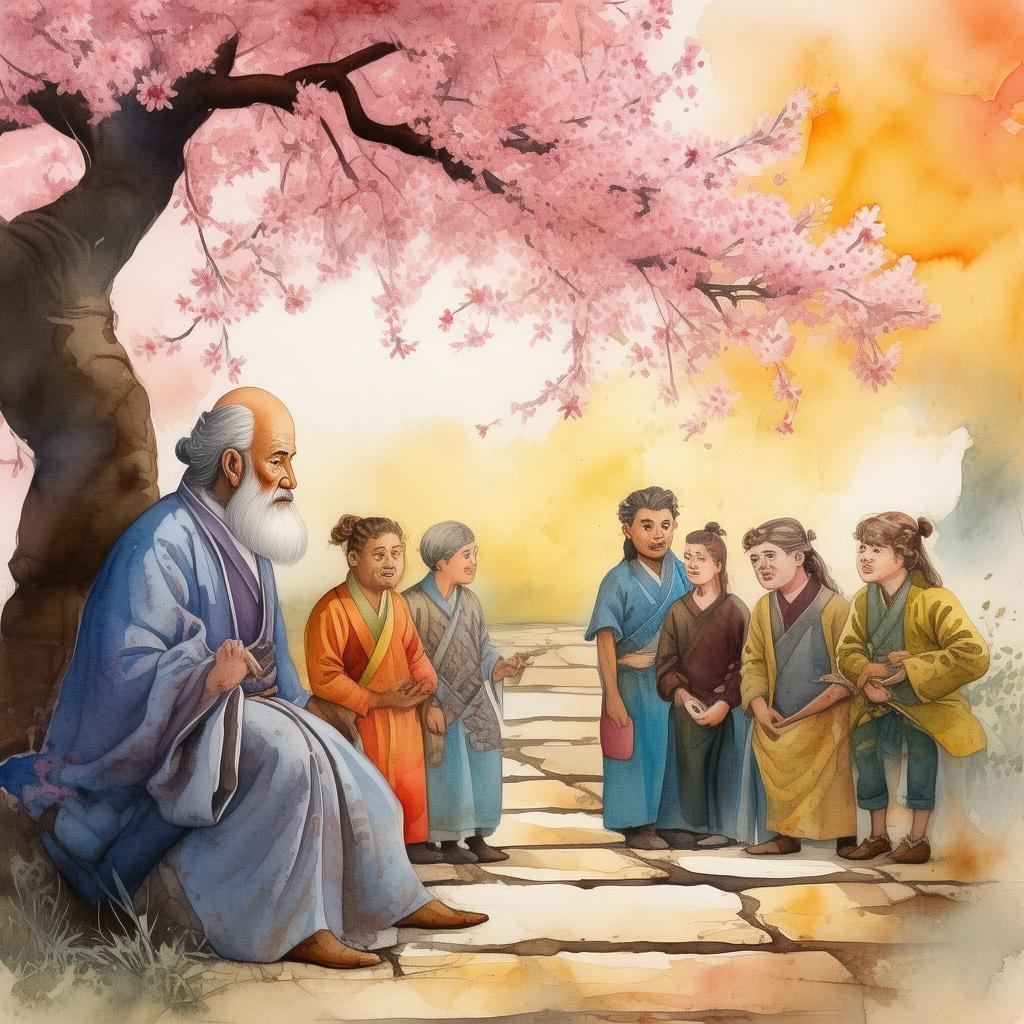The Pen That Defied Oblivion
In the heart of the ancient city of Ling, where the scent of ink and parchment mingled with the distant calls of vendors, there lived a man named Lin. Lin was not an ordinary scribe; he was a guardian of the written word, a keeper of history and stories that had been passed down through generations. His hands, calloused and skilled, danced across the paper, capturing the essence of the world around him in the strokes of his brush.
The city of Ling, once a beacon of culture and learning, was now under threat. A new ruler, seeking to stamp out the old ways, had decreed that all books, scrolls, and records were to be destroyed. The rationale was simple: to eliminate the past, to create a new era without the weight of history. The scribes, the keepers of the word, were seen as traitors, their art as an affront to the new order.
Lin's heart pounded as he heard the decree read aloud in the Great Square. The sound of the crowd's murmur grew louder, a cacophony of fear and defiance. He turned to his fellow scribes, their faces etched with resolve. The time for silence had passed.
In the dead of night, Lin gathered his tools—a brush, ink, and the last remaining scroll of a poem that had been written by a revered poet long before the current ruler's ascension. The scroll was a relic, a testament to the city's former grandeur. Lin's fingers trembled as he unrolled it carefully, the parchment yellowed with age but still holding the power of the words it contained.
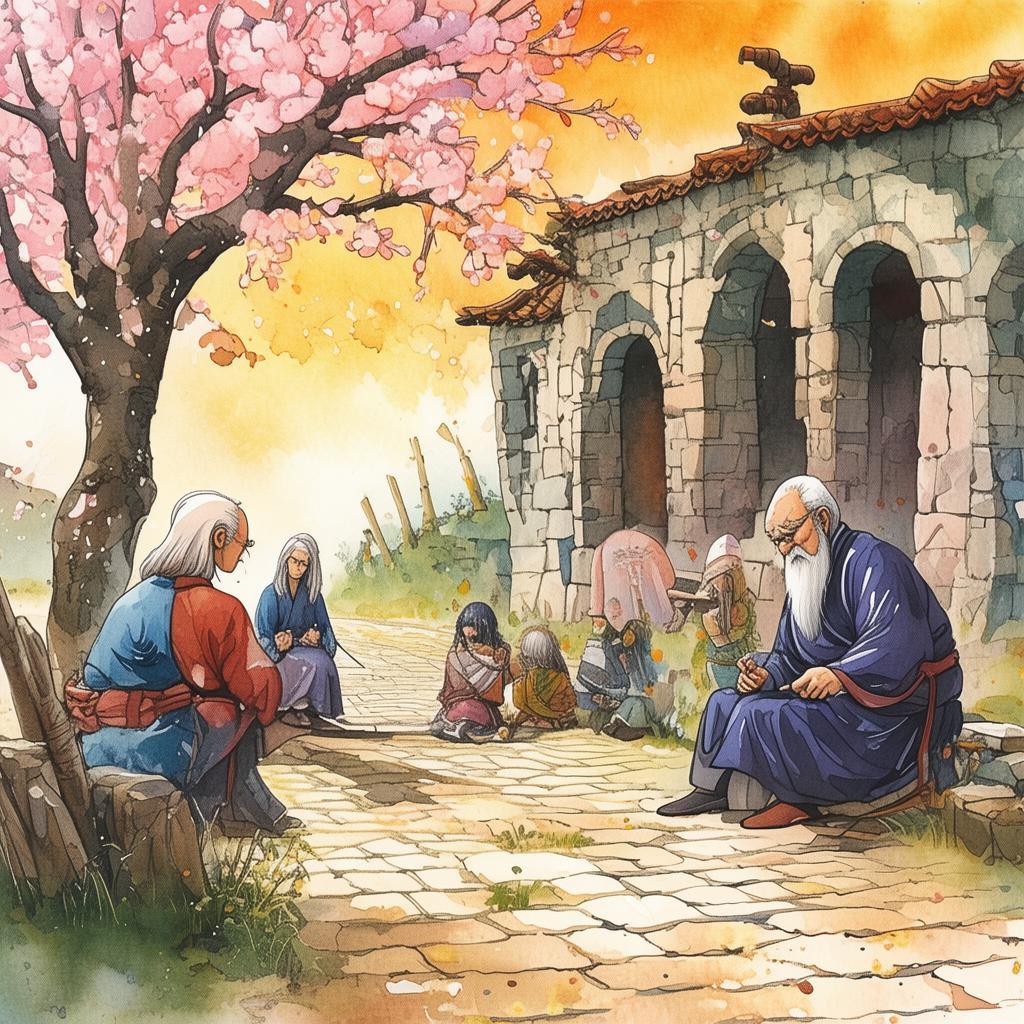
The poem was one of love, of loss, and of the enduring spirit of humanity. It was a call to remember, to cherish the moments that had shaped their world. Lin knew that if this scroll was destroyed, a part of the city's soul would die with it.
He took a deep breath and began to write. The ink flowed from his brush, each character a drop of life that would not be lost. He worked through the night, his eyes strained by the dim light of a flickering candle. His hands moved with a life of their own, as if they were guided by some unseen force.
The next morning, Lin stood before the ruler's court, the scroll in hand. The ruler, a man of stern features and a cold gaze, looked down upon him. "Lin, you have violated the decree," the ruler said, his voice tinged with anger.
"I have not," Lin replied, his voice steady. "I have preserved the word, the very essence of what we are as a people. The decree can destroy the scrolls, but it cannot destroy the words. They live in us, in our hearts and minds."
The crowd murmured, their voices a tide of defiance. The ruler's eyes narrowed, and he reached for his sword. "You will be punished for this."
But Lin had prepared for this moment. He held the scroll aloft, its edges glistening with fresh ink. "This is not just a scroll," he declared. "This is a symbol of our resilience, our defiance. You cannot kill the words; they are stronger than any sword."
As the ruler hesitated, Lin turned and walked out of the court, the scroll clutched tightly in his hands. The crowd followed, their eyes alight with hope and determination. The scribes of Ling had stood together, united against the erasure of words.
In the days that followed, the scribes of Ling continued to write, to preserve the stories that had been threatened with extinction. They worked in secret, their pens a shield against the darkness that sought to engulf them. And in the quiet corners of the city, the words lived on, whispered in hushed tones, a testament to the indomitable spirit of a people.
The Pen That Defied Oblivion became a legend, a story told by generations to come. It was a tale of courage, of the power of the written word, and of the enduring fight against the forces that seek to erase history. In the end, the words won, not through force, but through the unyielding determination of a few who believed that the past was worth preserving.
✨ Original Statement ✨
All articles published on this website (including but not limited to text, images, videos, and other content) are original or authorized for reposting and are protected by relevant laws. Without the explicit written permission of this website, no individual or organization may copy, modify, repost, or use the content for commercial purposes.
If you need to quote or cooperate, please contact this site for authorization. We reserve the right to pursue legal responsibility for any unauthorized use.
Hereby declared.
